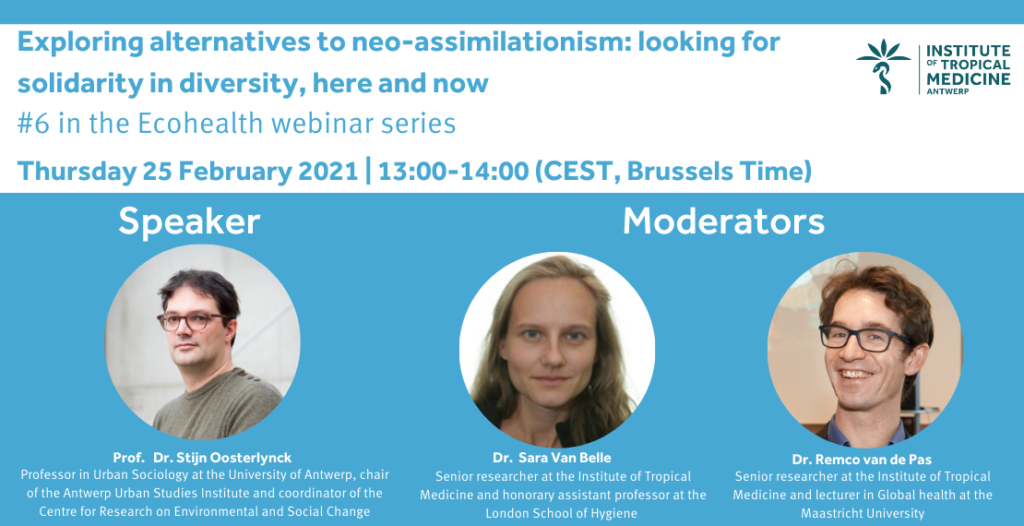
Exploring alternatives to neo-assimilationism: looking for solidarity in diversity, here and now
2020 will be remembered as the year when a ‘simple’ virus affected all spheres of life of very many people, with disastrous consequences all over the world. In essence, the COVID-19 pandemic is an example of how systemic approaches to health and health problems are central not only to health research, but also to policymaking and the development of effective and equitable policies for the challenges we are currently facing in our societies.
ITM’s Ecohealth group is organising a seminar series in which speakers will discuss current challenges such as climate change, globalisation, urbanisation and emerging diseases, and illustrate how systems approaches can be applied to better understand the issues, analyse their root causes and inform solutions.

The seminar is open to ITM staff, students and alumni. Interested members of the public can participate upon registration.
On 25 February, 1 – 2pm, Professor Stijn Oosterlynck will give a talk titled “Exploring alternatives to neo-assimilationism: looking for solidarity in diversity, here and now“.
Stijn Oosterlynck is Full Professor in Urban Sociology at the University of Antwerp. He is the chair of the Antwerp Urban Studies Institute and coordinator of the Centre for Research on Environmental and Social Change. He is also scientific director of the Hannah Arendt Institute for Diversity, Urbanity and Citizenship. His research is concerned with poverty and diversity in cities, local social innovation and welfare state restructuring, civil society organisations and urban social renewal.
About the EcoHealth group
The Ecohealth group brings together researchers from ITM’s 3 departments, from eco-epidemiology, infectious disease control, clinical medicine, political science, anthropology and health systems). The group adopts a whole systems approach to making sense of health and health problems. Its starting point is the dynamic interactions between human, social, biological, ecological and political systems and how that affects the health of people. This in turn demands a transdisciplinary approach and the active engagement and participation of key stakeholders in order to co-create solutions for transformative, sustainable and equitable change.
